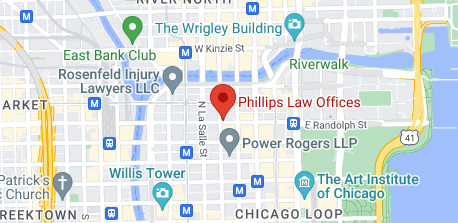
Call now for your
Free Consultation:

Free Consultation:

Free Consultation:
Most families go to great lengths to select a nursing home they trust will provide a safe and caring environment for their elderly loved ones. Unfortunately, nursing homes don’t always live up to our expectations. Learning that nursing home caregivers failed to take adequate steps to prevent an elderly parent or grandparent from wandering or leaving the care facility can be especially distressing for family members. Nursing home residents allowed to wander about or away from their care facility as the result of nursing home misconduct are at serious risk of injury and even death.
It’s estimated that 31 percent of nursing home residents with dementia wander at least once, according to the Journal of Advanced Nursing. Wandering refers to a disoriented or mentally impaired elderly patient’s ability to aimlessly move unsupervised throughout a nursing home or other long-term care facility, putting the resident at risk of entering a potentially dangerous situation.
When wandering goes unchecked, it can lead to an even more dangerous behavior: elopement. Elopement occurs when a cognitively impaired nursing home resident is allowed to leave the premises unsupervised or unnoticed. Patients who elope from their residences can become lost, suffer from exposure to the elements, be hurt or killed in falls, and suffer injury or death when walking into the street or a body of water. In addition, nursing home residents who must receive medications regularly can become ill or die when they miss their prescribed doses.
Preventing wandering and elopement is as simple as ensuring that sufficient supervision is available at all times, especially for patients who suffer from dementia or have demonstrated a tendency to wander. Nursing homes are legally required to provide each individual with the appropriate level of supervision for his or her circumstances. A proper plan for avoiding wandering and elopement should be specific, adaptable and evolving based on the needs of each resident. When nursing home care providers neglect to implement measures that prevent residents from wandering or eloping, they can and should be held responsible for resulting injuries. Situations in which nursing home staff can be held liable include:
It’s estimated that up to one half of all nursing home residents suffer from some degree of dementia, a contributing factor in the propensity to wander. Residents with Alzheimer’s, for instance, often experience severe anxiety associated with memory loss and disorientation with their circumstances, which can compel them to roam in confusion. Nursing home caregivers have an obligation to consider risk factors of each patient and to develop and implement systems to effectively safeguard residents, including those with dementia.
Wandering and elopement are risky behaviors that can have disastrous consequences for ill, frail and disoriented patients – and for their families. When unsupervised nursing home residents are hurt or killed, their loved ones are often left with staggering medical bills, not to mention considerable emotional anguish. If your loved one was injured or killed after wandering or exiting a nursing home unattended, you may be entitled to financial compensation in a nursing home negligence lawsuit.
At Phillips Law Offices, our Illinois personal injury lawyers have many decades of experience successfully assisting injured people and their families, including victims of nursing home abuse and neglect. It’s only natural to be concerned with the safety and well being of elderly family members. Our team of caring and compassionate nursing home abuse attorneys is dedicated to pursuing justice and damages on behalf of your loved one. Contact us today at (312) 346-4262 or online to learn more about your legal rights and options for full and fair compensation.

161 N Clark St #4925
Chicago, IL 60601
(312) 346-4262
Copyright 2023 Phillipslawoffices. All Right Reserved